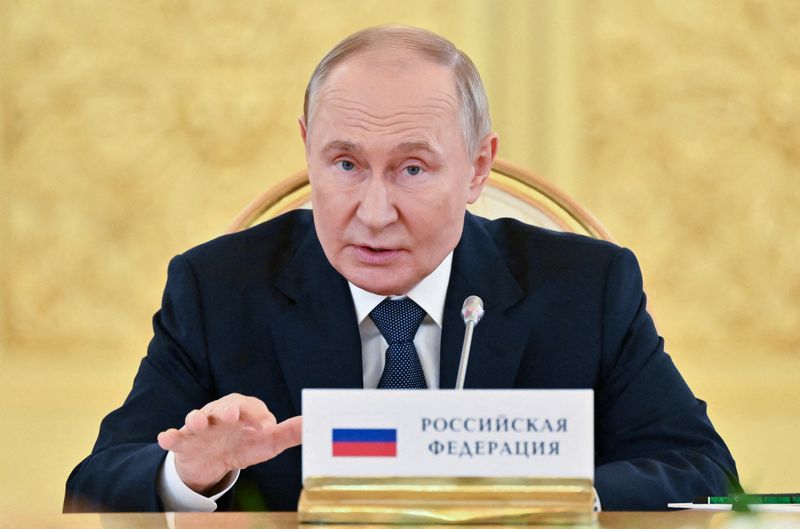(Reuters) - Russian authorities are set to raise the one-off contribution that foreign companies leaving the country must make to the state treasury to as high as 35% from 15%, the RBC business daily reported on Thursday, citing three unnamed sources and a lawyer.
Russia has steadily tightened exit requirements for foreign companies since Western sanctions were imposed over Moscow's invasion of Ukraine, demanding sharp discounts on any foreign asset sales before giving approval, and taking a portion of the sale price to bolster state coffers, dubbed an "exit tax" by Washington.
RBC reported, citing two of the sources, that 25% of the deal's value will have to be paid to the Russian treasury within a month of the transaction closing, with 5% to be paid within a year and the remaining 5% within two years.
Reuters confirmed RBC's report with a source involved in Russian mergers and acquisitions.
It was not clear when the tax increase would take effect.
The finance ministry had no immediate comment.
A government commission on foreign-asset sales, led by the finance ministry, determines the value of the tax and the size of a discount that foreign companies must accept when selling assets in Russia.
RBC also reported that the minimum discount companies must accept would be raised to 60% from 50% of the assets' value.

Deals worth more than 50 billion roubles ($517.6 million) will now all require President Vladimir Putin's approval, RBC reported.
($1 = 96.5955 roubles)